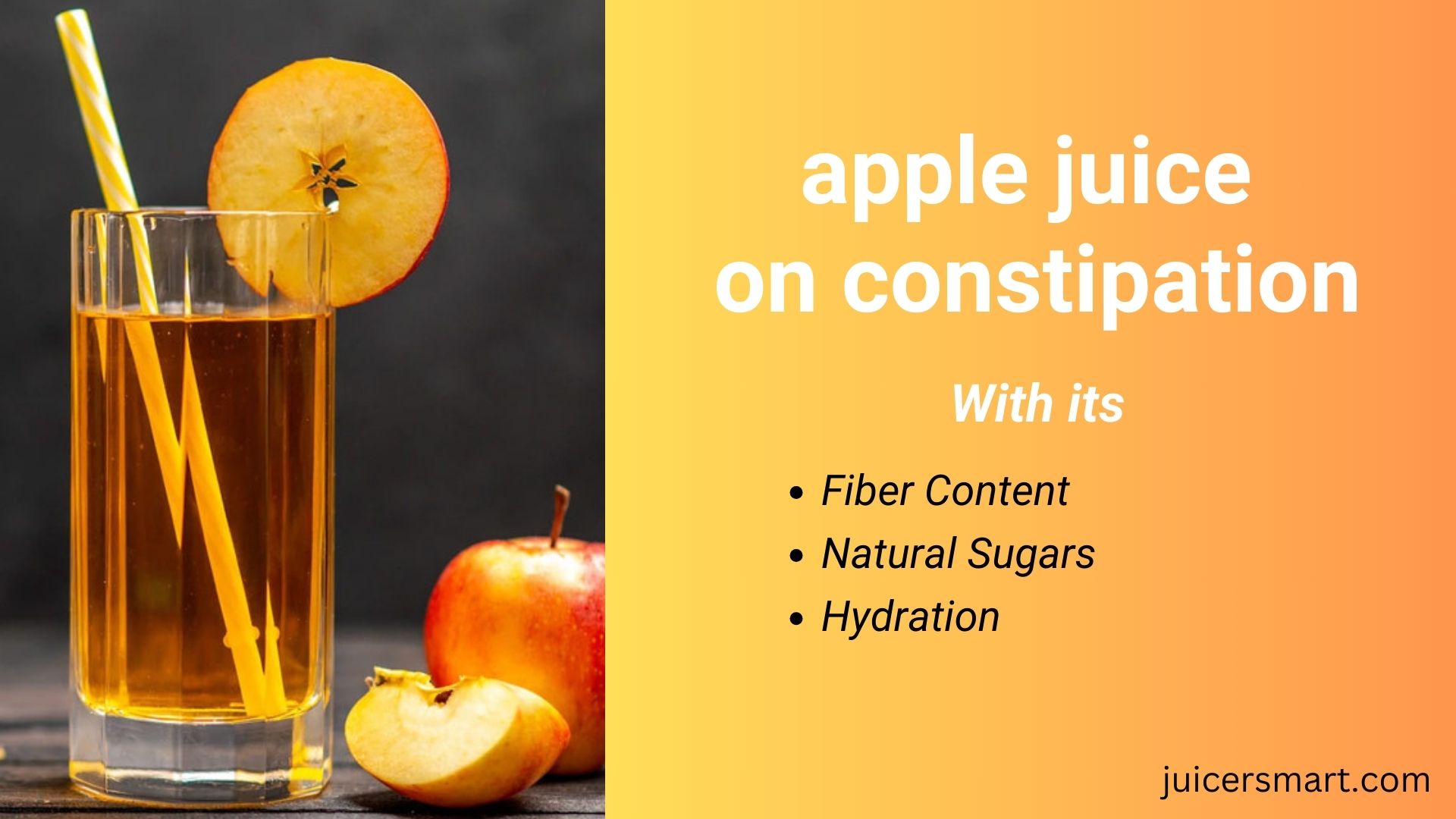Apple juice can be beneficial for some individuals with constipation, but its effectiveness may vary from person to person. Here’s how apple juice may help with constipation:
- Fiber Content: Apples and apple juice contain dietary fiber, mainly in the form of soluble fiber called pectin. Fiber adds bulk to the stool and helps promote regular bowel movements. It can soften and loosen the stool, making it easier to pass.
- Natural Sugars: Apple juice contains natural sugars, primarily fructose. These sugars can have a mild laxative effect for some people, as they draw water into the intestines and help soften the stool.
- Hydration: Staying hydrated is crucial for maintaining regular bowel movements. Apple juice is mostly water, and drinking fluids can help prevent dehydration, which can contribute to constipation.
While apple juice can be helpful for some individuals, it may not be a quick fix for everyone with constipation. Several factors, including the underlying cause of constipation, an individual’s diet, and their overall health, can influence whether apple juice is effective.
Here are some tips for using apple juice to alleviate constipation:
- Moderation: Drinking too much apple juice in one sitting may lead to diarrhea or stomach discomfort. Start with a small glass and see how your body reacts.
- Dietary Changes: Incorporating whole apples into your diet, along with apple juice, can provide additional fiber and benefits.
- Hydration: Drink plenty of water throughout the day, as dehydration can exacerbate constipation.
- Regular Exercise: Physical activity can help stimulate bowel movements and alleviate constipation.
If constipation persists or becomes chronic, it’s essential to consult a healthcare provider for a proper evaluation and treatment plan. Chronic constipation may require dietary adjustments, lifestyle changes, or medications depending on the underlying causes.
